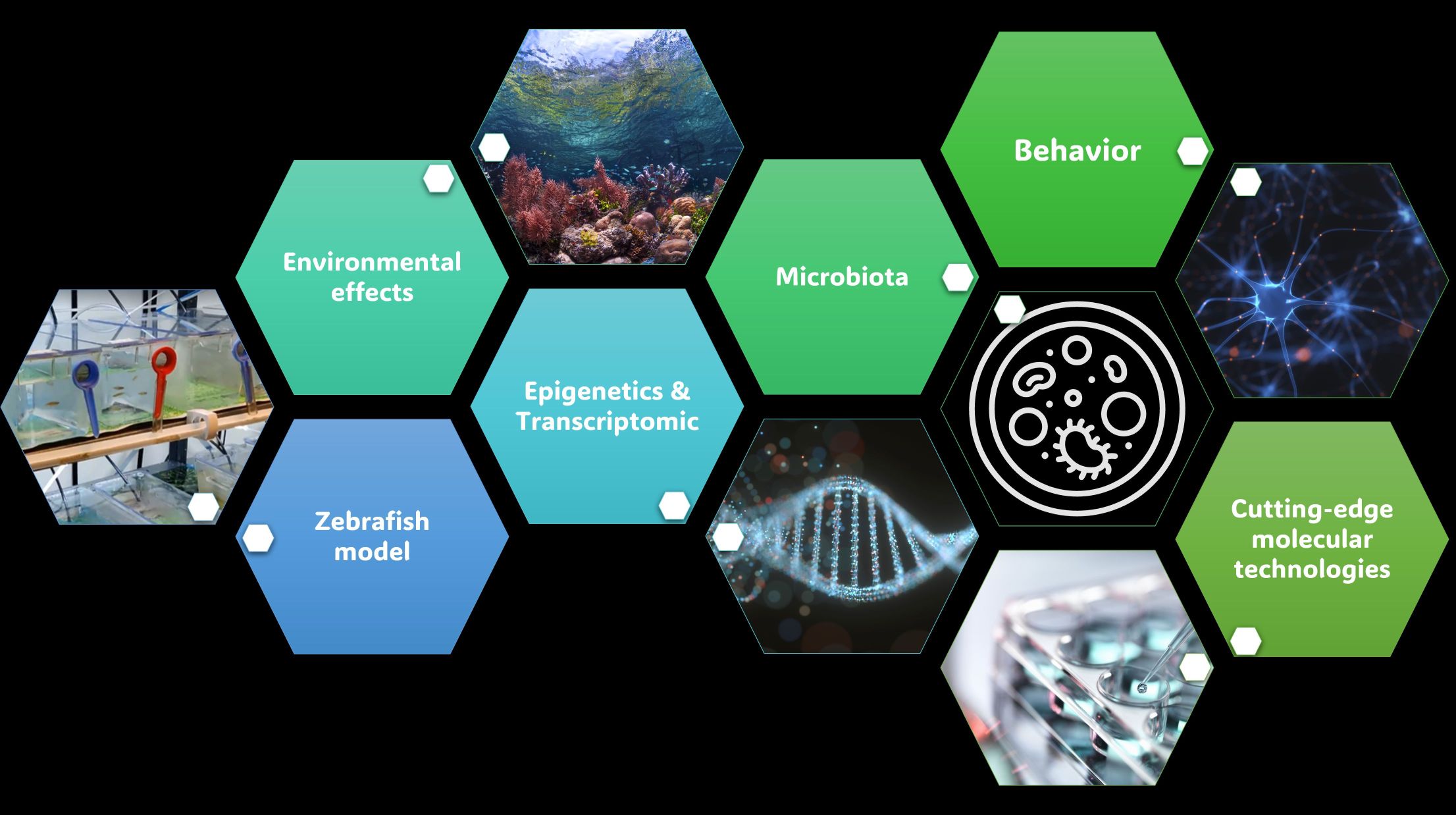Deciphering the co-effects of response to climate changes and perfluoroalkyl substances on the zebrafish
About this project
Project information
Project status
In progress 2023 - 2027
Contact
Research subject
Research environments
One of the major challenges of our century is environmental sustainability. Indeed, anthropic activities are threatening ecosystems’ balance and biodiversity survival. Assessing the effects of humans’ disturbances is then urgently needed. Aquatic organisms are particularly in danger due to climate changes and chemicals exposure. To what extent such environmental alterations could affect living organisms and their progeny still needs to be quantified and little is known about the adverse outcomes that can be expected when several environmental stresses arise in the same environment.
Therefore, the proposed project aims at:
1. study the potential of climate change and PFOS chemical exposure to induce epigenetic and/or microbiota changes in the zebrafish.
2. assess the adverse effect of the two stressors on zebrafish phenotype
3. decipher if the observed changes are transmitted to the next generations.
4. quantify the involvement of each environmental stressor and their interaction, on the observed adverse effects.
This project will merge state-of-the-art concepts, in vivo tests, and molecular analysis, with both genome-scale and targeted methods, to decipher the impact of climate changes and chemical pollutions (separated and simultaneously), on aquatic species and their descendants. This knowledge is key to predict the long-term consequences of anthropic effects on aquatic ecosystems and to improve risk assessment and environmental pollution monitoring in the future.

Researchers
Research groups
Collaborators
- Professor Kerstin Bystricky, Centre of Integrative Biology (CBI) Toulouse

